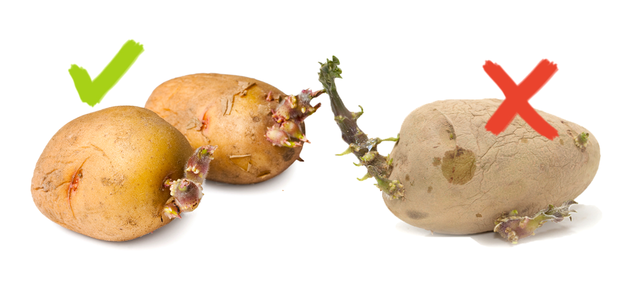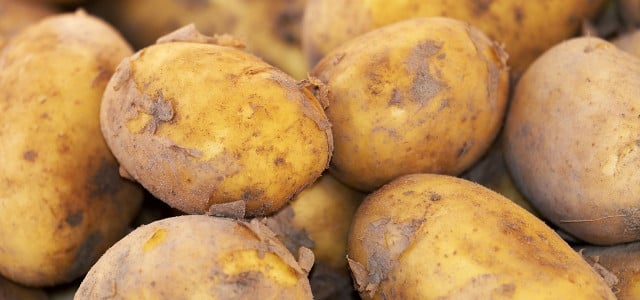When are potatoes bad? After potatoes sprout, they can become poisonous and are no longer edible. In this article, we’ll cover how to tell whether or not a potato is still okay to eat.
Whether roasted, mashed or fried, potatoes can be prepared in endless delicious ways. But there are a few things to pay attention to when cooking these tasty tubers. If your potatoes are green or sprouting, make sure you take a closer look before serving them up: they may contain poisonous substances. We’ll let you in on how to tell if sprouted potatoes, or green potatoes, are still edible.
What Makes Potatoes Poisonous?
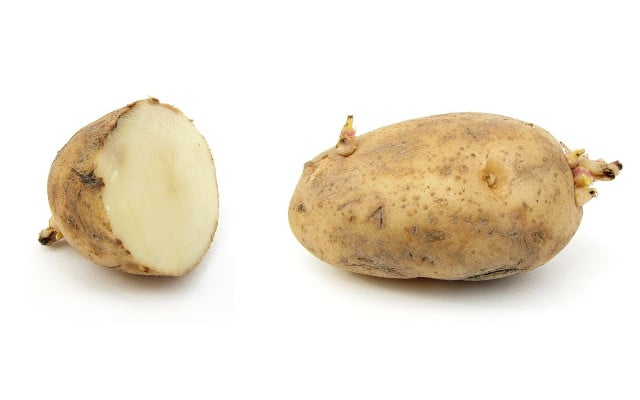
Certain types of vegetables naturally contain solanine, which is poisonous to humans. Solanine is a glycoalkaloid poison found in green, unripe potatoes, as well as in potatoes that have mature sprouts; the skin and the potato sprouts contain the highest concentration of the substance. So the simplest answer to the question “when are potatoes bad” is when they are very green or have a lot of large sprouts.
Potatoes are bad and can be poisonous if they are very green or have many large sprouts. They are then no longer edible.
The consumption of solanine can be dangerous, even in small amounts. According to ScienceDirect, symptoms of solanine poisoning include nausea, diarrhea, vomiting, stomach cramps, burning of the throat, heart arrhythmia, headache, and dizziness. Hallucinations, loss of sensation, paralysis, fever, jaundice, dilated pupils, hypothermia, and even death have also been reported in more severe cases.
So can you eat green and sprouted potatoes? The short answer is no. Eating green potatoes, or eating sprouted potatoes with very developed sprouts, is not worth the risk. After a certain stage of sprout development, or when there are too many potato sprouts, cutting them off will no longer help. The same applies to very green potatoes: at that point, the solanine has already spread throughout the entire tuber. Cooking them won’t help either: solanine can withstand temperatures up to almost 400°F.
When Can You Still Eat Sprouted Potatoes?
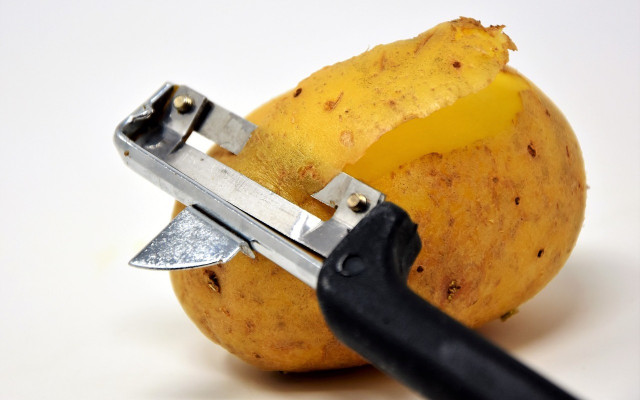


Rule of Thumb: Small sprouted potatoes can still be eaten with a maximum of 2-3 young sprouts. Larger sprouted potatoes are okay to eat with up to 5 small potato spouts. However, the sprouts should not be too long, and the potato should still look firm. In the interest of caution, cut off the sprouts at the bottom and gouge out the “eye” and peel the potatoes completely.
If you feel even slightly hesitant, it is best to throw the sprouted potatoes or green potatoes away. We don’t give this advice lightly: we generally advise to avoid food waste, but safety must always come first.
Also, don’t throw out the water you cooked your potatoes in. You can still use the potato water for watering your plants, as a weed killer, for cleaning and even for cooking and baking.
By the way: Because tomatoes also contain a high amount of solanine when they are still green, it is important to wait until they’re fully ripe before consuming them. Of course, that’s easiest if you grow your own tomatoes.
How To Avoid Sprouting Potatoes in the First Place
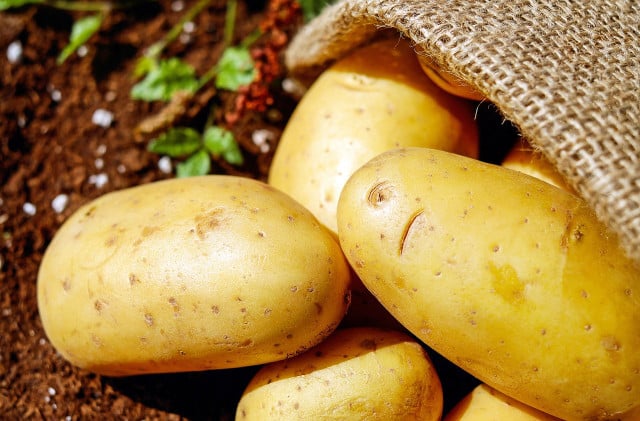


To avoid food waste, it is best to try and avoid potato sprouts and green potatoes altogether. Here are a few tips:
- Don’t buy potatoes in the supermarket that already have “eyes”.
- Store your potatoes at home in a dark place. Cellars or basements are ideal. The more light the potatoes are exposed to, the faster they will become green, and the more quickly potato sprouts will begin to grow.
- Temperature is another important factor when storing potatoes. Around 50°F is ideal.
- To prevent potatoes from becoming overripe, avoid having to store them for long periods of time by buying only the amount of potatoes that you need.
Important Information regarding Health-related Topics.
** Links to retailers marked with ** or underlined orange are partially partner links: If you buy here, you actively support Utopia.org, because we will receive a small part of the sales proceeds. More info.Do you like this post?






